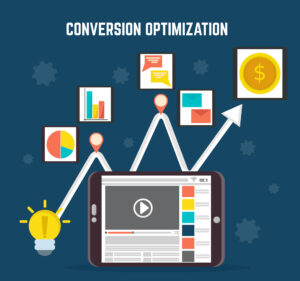Using the assets you have available to the most, is particularly important, when it comes to marketing in the competitive startup environment. Digital marketing is the new way to help businesses with their promotion which led to cheaper solutions that even startups can use to survive even though they have a budget that is tight. According to a Statista report, worldwide digital advertising spending will be around $645 billion by 2024, indicating that it is the main force in the marketing world.
When you are a startup that is interested in getting maximum ROI (Return on Investment) in the digital marketing area, this guide will explain to you the practical, budget-friendly strategies that you can implement and get quick results.
1. Understanding Digital Marketing and ROI
At first, it is important to clarify what digital marketing includes and what the main metric ROI is. Digital marketing is the process of advertising and selling products or services through online channels such as social media, email, search engines, and websites.

Marketing ROI is the portion of the revenue you generate compared to what you spend. For new companies, limiting the budget by spending on what brings a maximum result is of key importance. A well-organized digital marketing plan that is capable of delivering measurable outcomes is an exception to this fact. Allowing startups to base their decisions on data.
Note: State what the first step is, by setting clear objectives for your digital marketing strategy. Whether it is lead generation, increasing brand awareness, or boosting website traffic, it is necessary for the company to have clear goals.
- Set SMART Goals: Your goals ought to be Specific, Measurable, Achievable, Relevant, and Time-bound. For example, you could say, “Increase website traffic by 30% in the next three months.”
- Identify Your Target Audience: Creation of detailed buyer personas is a perfect way to become quite familiar with the exact audience you want to attract. Therefore, your marketing strategies will certainly be effective.
- Allocate Resources Wisely: Allocate the majority of your budget to those areas, such as social media advertising, and email campaigns, that have the highest success rate.
Pro Tip: Forget about a digital marketing strategy based on paying more; focus instead on spending it very wisely. The ability to measure the performance of your advertising campaigns and improve them is through free tools such as Google Analytics.
3. Leverage Social Media for Organic Growth
Social media platforms are a jackpot for small businesses. They allow you to interact with your audience at a minimum price. It may take quite a while before the organic growth becomes visible, but it is the most reliable method to establish a trustworthy and faithful fanbase.
- Content is King: Do not hesitate to feed your followers with something of high value and interest. For example, express your visual ideas through Instagram or share professional tips on LinkedIn.
- Engage with Your Audience: Be more interactive with your customer base by responding to their comments, engaging in popular discussions, and promoting user-generated content.
- Run Paid Campaigns on a Budget: Enterprises like Facebook and Instagram enable you to fund small ad campaigns with a precise audience.
Fact: According to a study by Sprout Social, 74% of consumers are on social media to check out customer testimonials and product creation and innovation.

4. Use Performance Marketing for Measurable Results
Performance marketing is about certain actions taken (e.g., clicks or conversions) on the website, hence, it is particularly convenient for these enterprises which want to use online marketing to get a full ROI.
- Pay-Per-Click (PPC): For instance, Google Ads and Bing Ads will enable you to find the relevant keywords for the business. Specify the amounts you are willing to spend on the daily budget each day and pay only when users click on your ad.
- Affiliate Marketing: The Internet is one of the best places for affiliate marketing. You can, for instance, build relationships with influencers or affiliate marketers who will promote your product or service and in return receive a percentage of the sales they help you to make.
- Retargeting Ads: Re-engage the users who have visited your website and yet not made any purchase through retargeting.
Pro Tip: To make sure that your performance marketing campaigns are giving you profits try to focus on metrics like Cost Per Acquisition (CPA) and Conversion Rates.
5. Invest in SEO for Long-Term Results
Search Engine Optimization (SEO) is a core part of the Internet marketing strategy for startups and other companies. It does not exist because it guarantees instant results, but because it is an excellent tool for driving traffic to your website through various search engines and building your brand image online, hence increasing your website’s visibility and credibility.
- Keyword Research: Use tools like SEMrush or Ahrefs to find the keywords people are using the most for your industry, for instance “use of ROI in marketing” or “how to do digital marketing on a startup business.”
- Content Marketing: Create and distribute your blogs, guides, and videos that cover the most burning questions in your niche. When you do this, you are increasing your authority in the field and getting more backlinks.
- On-Page SEO: Bettering your website’s meta tags, headers, and content with the use of targeted keywords like “digital marketing business” and “ecommerce trends” is the way to go.
Fact: The balance being closed, HubSpot has shown that SEO leads in closing sales are 14.6% most of the time, and this is so way beyond traditional used methods.

6. Email Marketing: The Unsung Hero
Email marketing is, from the start, one of the top channels that the startups choose for marketing. In fact, businesses that are doing email marketing are earning $42 on the average coming back for every $1 they spent. I mean, it is the best in cost-effective marketing strategy.
- Segment Your Audience: As a matter of fact, these steps may include the division of the list of your email contacts into different categories based on behavior, preferences, or even demographics for the purpose of launching some sort of personalized campaigns.
- Automate Campaigns: There are plenty of benefits of automation that include being able to send welcome emails, follow-ups, and promotional offers without your personal effort with tools like Mailchimp or Constant Contact.
- Track Metrics: These will show you the open rates, click-through rates, and conversions to help you correct the mistakes you made in the past.
7. Use Free and Affordable Tools
The digital marketing success of startups does not depend on expensive software. The following free and affordable tools could be a great aid in that regard:
- Google Analytics: To monitor the website traffic and user behavior.
- Canva: For preparing the professional grade graphics and presentation.
- Buffer or Hootsuite: For coordinating and maintaining social media posts.
- HubSpot CRM: For managing leads and customer relationships.
Fact: Properly using the tools will save time and increase productivity, therefore startups can concentrate on growth.

8. Adapt and Innovate with Changing Trends
E-commerce and digital sphere are continually developing and thus, it becomes important for startups to get ahead of the development wave.
- Voice Search Optimization: At the time of smart speakers’ growing concern, optimize your website for voice queries.
- Interactive Content: Quizzes, polls, and videos are elements that in total contribute to an increased number of visits and visits duration.
- AI and Automation: For example, chatbots are the tools which can provide enhanced customer experience and make resources be available for other purposes.
Pro Tip: Point out the competitors and the latest technologies to reshape your business strategy on the web.
Conclusion
The startup will not achieve maximum ROI just by the dollar investment, but the startup needs to take the right approach and come up with a good digital marketing strategy, and last but not least, never stop learning. The most effective methods can be in terms of social media, search engine optimization, and email campaigns among other possible tools the business may use.
Keep in mind the fact that digital marketing is not a one-size-fits-all solution. Allow yourself to try out different marketing methods, then measure the results and refine your approach in the long run. It is through their flexibility and resourcefulness that companies that are startups (we could consider changing the wording of the previous given sentence) can not only survive but also progress in the online game.
By making use of the suitable tools, the right strategies, and a never-give-up attitude, your online marketing strategy will give you good returns even if you only have a limited budget. Begin with a small amount, keep on being consistent, and you will be surprised to see how your startup is growing.
